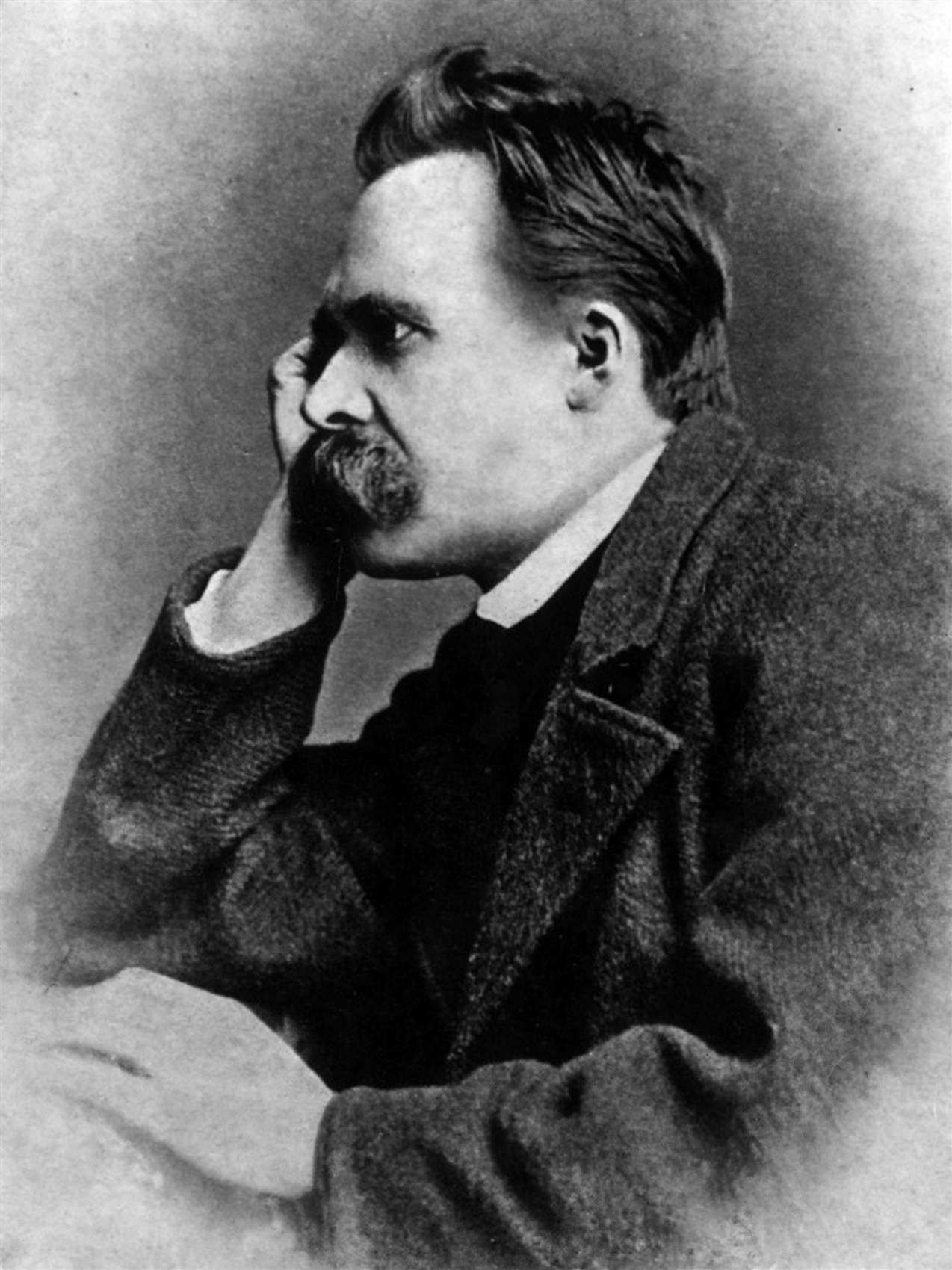|
Last Man
The last man () is a term used by the philosopher Friedrich Nietzsche in ''Thus Spoke Zarathustra'' to describe the antithesis of his theorized superior being, the ''Übermensch'', whose imminent appearance is heralded by Zarathustra. The last man is the archetypal passive nihilist. He is tired of life, takes no risks, and seeks only comfort and security. Therefore, the last man is unable to build and act upon a self-actualized ethos. Appearance in ''Thus Spoke Zarathustra'' The last man's first appearance is in "Zarathustra's Prologue". According to Nietzsche, the last man is the goal that modern society and Western civilization have apparently set for themselves. After having unsuccessfully attempted to get the populace to accept the ''Übermensch'' as the goal of society, Zarathustra confronts them with a goal so disgusting that he assumes that it will revolt thema culture which seeks only passive comfort and routine, avoiding everything that could potentially bring risk, ... [...More Info...] [...Related Items...] OR: [Wikipedia] [Google] [Baidu] |
Friedrich Nietzsche
Friedrich Wilhelm Nietzsche (15 October 1844 – 25 August 1900) was a German philosopher. He began his career as a classical philology, classical philologist, turning to philosophy early in his academic career. In 1869, aged 24, Nietzsche became the youngest professor to hold the Chair of Classical Philology at the University of Basel. Plagued by health problems for most of his life, he resigned from the university in 1879, and in the following decade he completed much of his core writing. In 1889, aged 44, he suffered a collapse and thereafter a complete loss of his mental faculties, with paralysis and vascular dementia. He lived his remaining years under the care of his family until his death. Friedrich Nietzsche bibliography, His works and Philosophy of Friedrich Nietzsche, his philosophy have fostered not only extensive scholarship but also much popular interest. Nietzsche's work encompasses philosophical polemics, poetry, cultural criticism and fiction, while displaying ... [...More Info...] [...Related Items...] OR: [Wikipedia] [Google] [Baidu] |
Thus Spoke Zarathustra
''Thus Spoke Zarathustra: A Book for All and None'' (), also translated as ''Thus Spake Zarathustra'', is a work of philosophical fiction written by German philosopher Friedrich Nietzsche; it was published in four volumes between 1883 and 1885. The protagonist is nominally the historical Zarathustra, more commonly called Zoroaster in the West. Much of the book consists of discourses by Zarathustra on a wide variety of subjects, most of which end with the refrain "thus spoke Zarathustra". The character of Zarathustra first appeared in Nietzsche's earlier book '' The Gay Science'' (at §342, which closely resembles §1 of "Zarathustra's Prologue" in ''Thus Spoke Zarathustra''). The style of Nietzsche's ''Zarathustra'' has facilitated varied and often incompatible ideas about what Nietzsche's Zarathustra says. The " planations and claims" given by the character of Zarathustra in this work "are almost always analogical and figurative".Del Caro and Pippin, "Introduction" in ''Th ... [...More Info...] [...Related Items...] OR: [Wikipedia] [Google] [Baidu] |
Antithesis
Antithesis (: antitheses; Greek for "setting opposite", from "against" and "placing") is used in writing or speech either as a proposition that contrasts with or reverses some previously mentioned proposition, or when two opposites are introduced together for contrasting effect. Antithesis can be defined as "a figure of speech involving a seeming contradiction of ideas, words, clauses, or sentences within a balanced grammatical structure. Parallelism of expression serves to emphasize opposition of ideas". An antithesis must always contain two ideas within one statement. The ideas may not be structurally opposite, but they serve to be functionally opposite when comparing two ideas for emphasis. According to Aristotle, the use of an antithesis makes the audience better understand the point the speaker is trying to make. Further explained, the comparison of two situations or ideas makes choosing the correct one simpler. Aristotle states that antithesis in rhetoric is similar to ... [...More Info...] [...Related Items...] OR: [Wikipedia] [Google] [Baidu] |
Übermensch
The ( , ; 'Overman' or 'Superman') is a concept in the philosophy of Friedrich Nietzsche. In his 1883 book, '' Thus Spoke Zarathustra'' (), Nietzsche has his character Zarathustra posit the as a goal for humanity to set for itself. The represents a shift from otherworldly Christian values and manifests the grounded human ideal. The is someone who has "crossed over" the bridge, from the comfortable "house on the lake" (the comfortable, easy, mindless acceptance of what a person has been taught, and what everyone else believes) to the mountains of unrest and solitude. In English In 1896, Alexander Tille made the first English translation of '' Thus Spoke Zarathustra'', rendering as "Beyond-Man". In 1909, Thomas Common translated it as "Superman", following the terminology of George Bernard Shaw's 1903 stage play '' Man and Superman''. Walter Kaufmann lambasted this translation in the 1950s for two reasons: first, the failure of the English prefix "super" to capture the ... [...More Info...] [...Related Items...] OR: [Wikipedia] [Google] [Baidu] |
Nihilist
Nihilism () encompasses various views that reject certain aspects of existence. There have been different nihilist positions, including the views that life is meaningless, that moral values are baseless, and that knowledge is impossible. These views span various branches of philosophy, including ethics, value theory, epistemology, and metaphysics. Nihilism is often characterized as a broad cultural phenomenon or historical movement that pervades modernity in the Western world. Existential nihilism asserts that life is inherently meaningless and lacks a higher purpose. By suggesting that all individual and societal achievements are ultimately pointless, it can lead to indifference, lack of motivation, and existential crises. In response, some philosophers propose detachment from worldly concerns while others seek to discover or create values. Moral nihilism, a related view, denies the objective existence of morality, arguing that moral evaluations and practices rest on misgui ... [...More Info...] [...Related Items...] OR: [Wikipedia] [Google] [Baidu] |
Western Culture
Western culture, also known as Western civilization, European civilization, Occidental culture, Western society, or simply the West, refers to the Cultural heritage, internally diverse culture of the Western world. The term "Western" encompasses the social norms, ethical values, Tradition, traditional customs, belief systems, political systems, Cultural artifact, artifacts and technology, technologies primarily rooted in History of Europe, European and History of the Mediterranean region, Mediterranean histories. A broad concept, "Western culture" does not relate to a region with fixed members or geographical confines. It generally refers to the classical era cultures of Ancient Greece and Ancient Rome that expanded across the Mediterranean basin and Europe, and later circulated around the world predominantly through colonization and globalization. Historically, scholars have closely associated the idea of Western culture with the classical era of Greco-Roman antiquity. Howeve ... [...More Info...] [...Related Items...] OR: [Wikipedia] [Google] [Baidu] |
Will To Power
The will to power () is a concept in the philosophy of Friedrich Nietzsche. The will to power describes what Nietzsche may have believed to be the main driving force in humans. However, the concept was never systematically defined in Nietzsche's work, leaving its interpretation open to debate. Usage of the term by Nietzsche can be summarized as self-determination, the concept of actualizing one's will onto one's self or one's surroundings, and coincides heavily with egoism. ''Kraft'' vs. ''Macht'' Some of the misconceptions of the will to power, including Nazi appropriation of Nietzsche's philosophy, arise from overlooking Nietzsche's distinction between ''Kraft'' ("force" or "strength") and ''Macht'' ("power" or "might"). ''Kraft'' is primordial strength that may be exercised by anything possessing it, while ''Macht'' is, within Nietzsche's philosophy, closely tied to sublimation and "self-overcoming", the conscious channeling of ''Kraft'' for creative purposes. Early infl ... [...More Info...] [...Related Items...] OR: [Wikipedia] [Google] [Baidu] |
Nihilism
Nihilism () encompasses various views that reject certain aspects of existence. There have been different nihilist positions, including the views that Existential nihilism, life is meaningless, that Moral nihilism, moral values are baseless, and that Philosophical skepticism, knowledge is impossible. These views span various branches of philosophy, including ethics, value theory, epistemology, and metaphysics. Nihilism is often characterized as a broad cultural phenomenon or historical movement that pervades modernity in the Western world. Existential nihilism asserts that life is inherently meaningless and lacks a higher purpose. By suggesting that all individual and societal achievements are ultimately pointless, it can lead to Apathy, indifference, Motivation#Amotivation and akrasia, lack of motivation, and existential crises. In response, some philosophers propose detachment from worldly concerns while others seek to discover or create values. Moral nihilism, a related view, ... [...More Info...] [...Related Items...] OR: [Wikipedia] [Google] [Baidu] |
Endling
An endling is the last known individual of a species or subspecies. Once the endling dies, the species becomes extinct. The word was coined in correspondence in the scientific journal ''Nature''. Usage The 4 April 1996 issue of ''Nature'' published a correspondence in which commentators suggested that a new word, ''endling'', be adopted to denote the last individual of a species. The 23 May issue of ''Nature'' published several counter-suggestions, including ''ender'', ''terminarch'', and ''relict''. The word ''endling'' appeared on the walls of the National Museum of Australia in ''Tangled Destinies'', a 2001 exhibition by Matt Kirchman and Scott Guerin, about the relationship between Australian peoples and their land. In the exhibition, the definition, as it appeared in Nature, was printed in large letters on the wall above two specimens of the extinct Tasmanian tiger: "Endling (n.) The last surviving individual of a species of animal or plant". A printed description of t ... [...More Info...] [...Related Items...] OR: [Wikipedia] [Google] [Baidu] |
Superfluous Man
__NOTOC__ The superfluous man (, ''líshniy chelovék'', "extra person") is an 1840s and 1850s Russian literary concept derived from the Byronic hero. It refers to a man, perhaps talented and capable, who does not fit into social norms. In most cases, this person is born into wealth and privilege. Typical characteristics are disregard for social values, cynicism, and existential boredom; typical behaviors are gambling, drinking, romantic intrigues and duels. He is often unmindful, indifferent or unempathetic with society's issues and can carelessly distress others with his actions, despite his position of power. He will often use his power for his own comfort and security and will have very little interest in being charitable or using it for the greater good. The character type originates in Alexander Pushkin's verse-novel ''Eugene Onegin'' (1825–1832). This term was popularized by Ivan Turgenev's novella '' The Diary of a Superfluous Man'' (1850) and was thereafter applied t ... [...More Info...] [...Related Items...] OR: [Wikipedia] [Google] [Baidu] |
The End Of History And The Last Man
''The End of History and the Last Man'' is a 1992 book of political philosophy by American political scientist Francis Fukuyama which argues that with the ascendancy of Western liberal democracy—which occurred after the Cold War (1945–1991) and the dissolution of the Soviet Union (1991)—humanity has reached "not just... the passing of a particular period of post-war history, but the end of history as such: That is, the end-point of mankind's ideological evolution and the universalization of Western liberal democracy as the final form of human government." Fukuyama draws upon the philosophies and ideologies of G. W. F. Hegel and Karl Marx, who define human history as a linear progression, from one socioeconomic epoch to another. The book expands on Fukuyama's essay "The End of History?", published in ''The National Interest'' journal, Summer 1989. , access-date =February 21, 2024 Overview Fukuyama argues that history should be viewed as an evolutionary process, and th ... [...More Info...] [...Related Items...] OR: [Wikipedia] [Google] [Baidu] |






